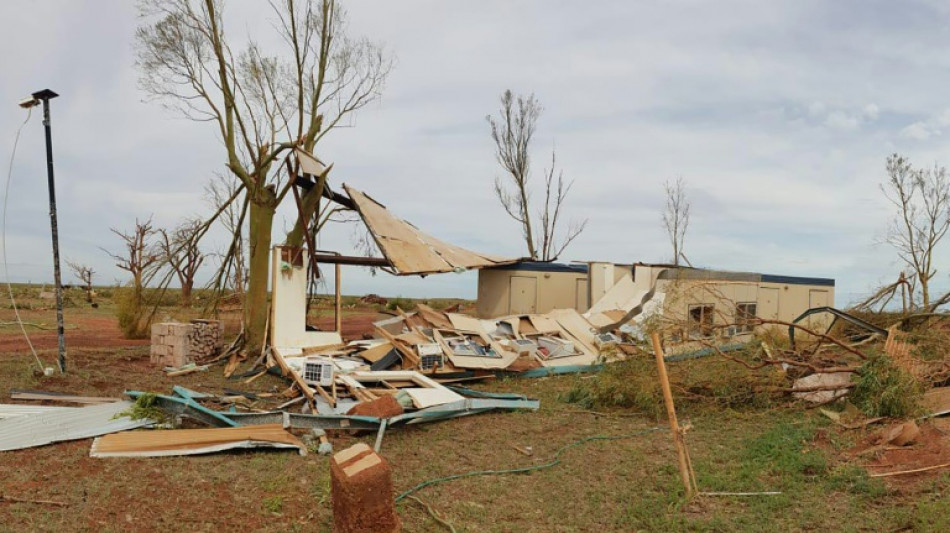
CMSD
-0.3700

A severe tropical cyclone lashed northwestern Australia Friday bringing the strongest winds the country has ever recorded, but officials said towns and cities appeared to have escaped the worst of the storm.
Tropical Cyclone Ilsa made landfall in the early hours as a category five storm -- the strongest on the scale -- near the sparsely-populated town of Pardoo, about 19 hours' drive northeast of Perth.
Images from the scene showed the storm's destructive power, blasting through walls and tearing off the roof at the Pardoo petrol station.
The Bureau of Meteorology's Todd Smith said the cyclone brought a wind gust of 289 kilometres (179 miles) per hour -- believed to be the strongest on record in Australia.
Ilsa also packed an Australian record for the strongest sustained wind speeds over a 10-minute period -- averaging 218 kilometres (135 miles) per hour.
The previous record was 194 kph, set by Cyclone George in 2007.
"It just shows how strong this system was as it approached the coast," Smith told reporters.
For the region's largest towns and settlements it was a narrow escape, and they appear to have escaped major damage, authorities said.
"I've been told that early assessments in those areas show damage is fairly minimal," acting Emergency Services Minister Sue Ellery told reporters.
The world's biggest iron ore-shipping hub reopened Friday after it was forced to close earlier in the week as the cyclone gathered pace above the Indian Ocean.
- Red Alert -
The cyclone has since been downgraded to a category two, but authorities remain wary as it barrels inland towards several remote Aboriginal communities and a major gold mine.
The Department of Fire and Emergency Services issued a new series of "red alerts" as the storm swerved inland on Friday afternoon, ordering people to stay indoors until given the all-clear.
"There are several remote communities and mining operations which are yet to be impacted," Ellery said.
These included the Aboriginal community of Punmu and the Newcrest gold mine in Telfer.
"It is too early to know the impact of the cyclone as it continues to pass through the area," Newcrest told AFP in a statement.
Tropical storms typically sputter out quickly once they reach land, but Ilsa was forecast to maintain an unusual intensity as it moved across the vast desert Outback in the coming days.
The northwest coast of Western Australia is the most "cyclone-prone region" in the country, according to the Bureau of Meteorology.
It also has "the highest incidence of cyclones in the southern hemisphere".
The region holds significant deposits of iron ore, copper and gold, and is home to some of Australia's largest mining operations.
Australian researchers have repeatedly warned that climate change amplifies the risk of natural disasters such as bushfires, floods and cyclones.
W.Urban--TPP